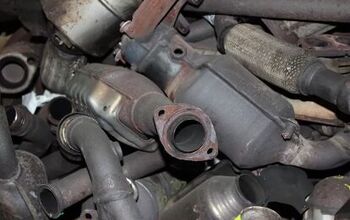Worried About Exhaust in Your Ford Explorer's Cabin? Ford Might Just Buy It Back

Well, it might if a news crew profiles your SUV. A Maryland couple’s 2016 Ford Explorer, one of many late-model Explorers suspected of emitting high levels of carbon monoxide into the cabin, turned out to be doing just that. However, even after the exhaust leak was confirmed — then fixed — by Ford, peace of mind did not return to Mark and Valentina Shedrick.
With an NBC news team sniffing around and a National Highway Traffic Safety Administration investigation ongoing, the automaker decided to buy back the vehicle. Other owners, including police departments, would likely prefer knowing their vehicle is safe.
In late July the NHTSA expanded its probe into the Explorer, widening the net to include 1.33 million vehicles produced from the 2011 model year onward. At the time, 2,700 complaints of an exhaust-like odor in the cabin sat in the agency’s online database, with 41 reported injuries.
One year earlier, 154 complaints sparked an initial investigation into 2011-2015 Explorers. Apparently, two technical service bulletins sent to dealers in 2012 and 2014 did not remedy the issue. Several police departments have now sidelined their Police Interceptor Utility vehicles (the law enforcement version of the Explorer) after officers fell ill, including a Newport Beach, California officer who passed out behind the wheel, crashing into a tree.
The NHTSA has not definitively linked carbon monoxide exposure to the injuries.
Back to the Maryland couple. NBC‘s News4 Washington sent a toxicologist to measure carbon monoxide levels in the Sheldrick’s Explorer, discovering “elevated levels” of the odorless, toxic gas. Within days, Ford sent engineers to perform the same test.
While the Ford engineers made the same discovery, the owners were not presented with a printed copy of the findings. The automaker replied to News 4 by claiming, “The Ford engineers who investigated the customer’s vehicle did not generate a written report. They provided the information from our investigation directly to the customer, verbally.”
After an unspecified repair (the NHTSA points to tiny cracks in the exhaust manifold as the likely culprit in many cases, especially those involving law enforcement), tests showed the couple’s Explorer possessing “near zero” carbon monoxide emissions in the cabin. The news crew’s toxicologist confirmed Ford’s findings. Still, the couple wasn’t satisfied. Worried the issue could crop up again, the two permanently parked their vehicle, refusing to drive it.
Now, Ford has announced it will buy back the couple’s Explorer.
Whether or not the NHTSA compels Ford to recall seven model years of the Explorer remains to be seen. The investigation’s expansion in July turned the probe into an “engineering analysis,” or one step below a recall. Of course, that doesn’t mean owners can’t take action in the meantime. Ford offers a hotline (888-260-5575) for concerned private or fleet operators, and any owner can take his or her vehicle to a dealership and ask about Service Bulletin TSB 14-0130.
[Image: Ford Motor Company]

More by Steph Willems
Latest Car Reviews
Read moreLatest Product Reviews
Read moreRecent Comments
- Lou_BC Collective bargaining provides workers with the ability to counter a rather one-sided relationship. Let them exercise their democratic right to vote. I found it interesting that Conservative leaders were against unionization. The fear there stems from unions preferring left leaning political parties. Wouldn't a "populist" party favour unionization?
- Jrhurren I enjoyed this
- Jeff Corey, Thanks again for this series on the Eldorado.
- AZFelix If I ever buy a GM product, this will be the one.
- IBx1 Everyone in the working class (if you’re not in the obscenely wealthy capital class and you perform work for money you’re working class) should unionize.


































Comments
Join the conversation
mine has and it was a cheapo Walmart First Alert unit, I do test it periodically, because it has a life span of a couple of years.
Why is Ford buying the vehicle back? Sounds like they found and fixed the problem. Dealerships will have no fun but make lots of money replacing exhaust manifolds under warranty.